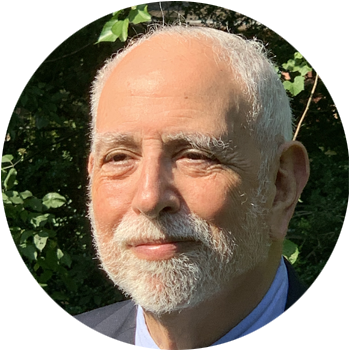1.5 Hours | 1.5 CEs
This on-demand professional training program on Understanding and Reshaping Law Enforcement Interactions with Persons with a Mental Disability is presented by Michael Perlin, JD and Heather Ellis Cucolo, JD, in partnership with the Mental Disability Law and Policy Associates (MDLPA)
This program introduces the fundamental case law on the Fourth Amendment’s application to the use of excessive force by law enforcement against persons with a mental disability. Through this law, participants learn how the Supreme Court has narrowed Fourth Amendment protections and expanded the right of officers to use excessive force without legal consequence.
Additionally, the presentation introduces participants to the American with Disabilities Act and focus on the required steps law enforcement personnel must take to ensure that they are not discriminating against individuals with mental disabilities. Presenters will provide an overview of the ADA legal principles applicable to state and local criminal justice programs.
Throughout the presentation, real-life examples are used to demonstrate how suggested best practices by law enforcement would effectuate better outcomes for both police and citizens.
Throughout the presentation, real-life examples are used to demonstrate how suggested best practices by law enforcement would effectuate better outcomes for both police and citizens.
This program covers:
- Statistics on use of excessive force
- Fourth amendment case law on excessive force
- Factual examples demonstrating the failure of statutes and prevailing case law to effectively serve persons with a mental disability
- Title II of the ADA as it relates to excessive force claims
- Detail jurisdictional police protocols that have the potential to better guide law enforcement in their interactions with persons with a mental disability
This program is ideal for lawyers, disability rights advocates, police, police administration, social workers, emergency response technicians, clinicians, and forensic practitioners and all stages of career development.

Intended Audience
This on-demand professional training program is intended for mental health and other allied professionals

Experience Level
This on-demand professional training program is appropriate for beginner, intermediate, and advanced level clinicians.

CE / CPD Credit
APA, ASWB, CPA, NBCC Click here for state and other regional board approvals.
Learning Objectives
Upon completion of this program you will be able to:

Describe current statistics and real-life scenarios that exemplify the problems in policing persons with a mental illness or mental disability

Describe the prevailing caselaw that considers excessive force and Fourth Amendment protections for persons with a mental illness or mental disability

Describe how the Americans with Disabilities Act intersects with Fourth Amendment jurisprudence for persons with a mental disability

Describe best practices in law and policing that would benefit persons with a mental disability during interactions with law enforcement

Curriculum
1. Introduction
2. Police Use of Force: Issues of Race and Mental Health
3. Police Attitudes
4. Understanding Use of Force in the Law
5. Applying Graham to persons with Mental Illness
6. Americans with Disabilities Act
7. Best Practices and Current Reforms
8. Therapeutic Jurisprudence
Develop a Specialty Area of Practice
Transforming mental health professionals into experts
Expert Instructors
Professional training developed and delivered by the field's leading experts

CE Credit
Earn CE credit for meaningful professional training that will elevate your practice
Convenience & Flexibility
Learn at your own pace, from wherever you might be!
Program Partner
Mental Disability Law and Policy Associates
We are proud to partner with Mental Disability Law and Policy Associates, LLC for this training. MDLPA is a boutique educational training company that offers specialized mental disability law consulting, the creation or enhancement of distance learning programs, in-house or online courses, and day or weekend training seminars to reputable organizations, educational institutions, professional groups, and advocacy groups focused on providing advanced knowledge and skills to persons working with marginalized populations.

CE Sponsorship Information
Palo Alto University, Continuing and Professional Studies (CONCEPT) is approved by the American Psychological Association to sponsor continuing education for psychologists. Palo Alto University, Continuing and Professional Studies (CONCEPT) maintains responsibility for this program and its content. Palo Alto University, Continuing and Professional Studies (CONCEPT) is approved by the Canadian Psychological Association to offer continuing education for psychologists. Palo Alto University, Continuing and Professional Studies (CONCEPT), SW CPE is recognized by the New York State Education Department’s State Board for Social Work as an approved provider of continuing education for licensed social workers #SW-0356 and the New York State Education Department’s State Board for Mental Health Practitioners as an approved provider of continuing education for licensed mental health counselors. #MHC-0073. Palo Alto University, Continuing and Professional Studies (CONCEPT) has been approved by NBCC as an Approved Continuing Education Provider, ACEP No. 6811. Programs that do not qualify for NBCC credit are clearly identified. CONCEPT Professional Training, #1480, is approved to offer social work continuing education by the Association of Social Work Boards (ASWB) Approved Continuing Education (ACE) program. Organizations, not individual courses, are approved as ACE providers. State and provincial regulatory boards have the final authority to determine whether an individual course may be accepted for continuing education credit. CONCEPT Professional Training maintains responsibility for this course. ACE provider approval period: 11/22/23-11/22/26. Social workers completing this course receive (clinical or social work ethics) continuing education credits.



